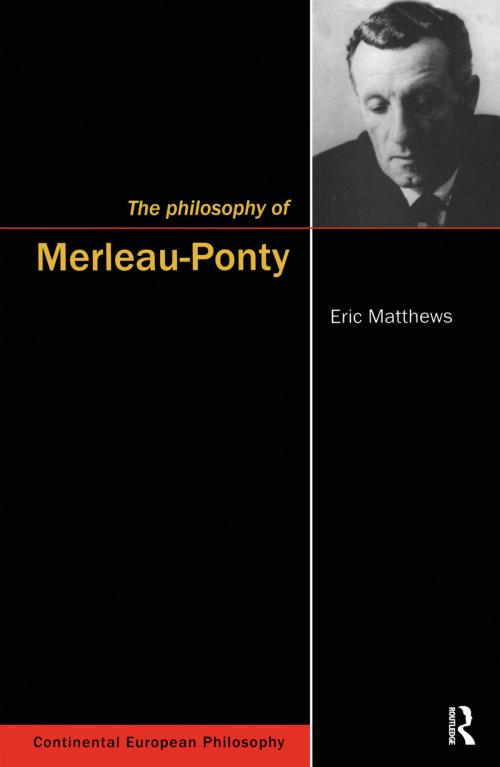| Author: | Eric Matthews | ISBN: | 9781317489610 |
| Publisher: | Taylor and Francis | Publication: | December 18, 2014 |
| Imprint: | Routledge | Language: | English |
| Author: | Eric Matthews |
| ISBN: | 9781317489610 |
| Publisher: | Taylor and Francis |
| Publication: | December 18, 2014 |
| Imprint: | Routledge |
| Language: | English |
In this introduction to the life and thought of one of the most important French thinkers of the twentieth-century Eric Matthews shows how Merleau-Ponty has contributed to current debates in philosophy, such as the nature of consciousness, the relation between biology and personality, the historical understanding of human thought and society, and many others. Surveying the whole range of Merleau-Ponty's thinking, the author examines his views about the nature of phenomenology and the primacy of perception; his account of human embodiment, being-in-the-world, and his understanding of human behaviour; his conception of the self and its relation to other selves; and, his views on society, politics, and the arts. A final chapter considers his later thought, published posthumously. The ideas of Merleau-Ponty are shown to be of immense importance to the development of French philosophy and the author evaluates his distinctive contributions and relates his thought to that of his predecessors, contemporaries and successors, both in France and elsewhere. This unrivalled introduction will be welcomed by philosophers and cognitive scientists as well as students taking courses in contemporary continental philosophy.
In this introduction to the life and thought of one of the most important French thinkers of the twentieth-century Eric Matthews shows how Merleau-Ponty has contributed to current debates in philosophy, such as the nature of consciousness, the relation between biology and personality, the historical understanding of human thought and society, and many others. Surveying the whole range of Merleau-Ponty's thinking, the author examines his views about the nature of phenomenology and the primacy of perception; his account of human embodiment, being-in-the-world, and his understanding of human behaviour; his conception of the self and its relation to other selves; and, his views on society, politics, and the arts. A final chapter considers his later thought, published posthumously. The ideas of Merleau-Ponty are shown to be of immense importance to the development of French philosophy and the author evaluates his distinctive contributions and relates his thought to that of his predecessors, contemporaries and successors, both in France and elsewhere. This unrivalled introduction will be welcomed by philosophers and cognitive scientists as well as students taking courses in contemporary continental philosophy.















